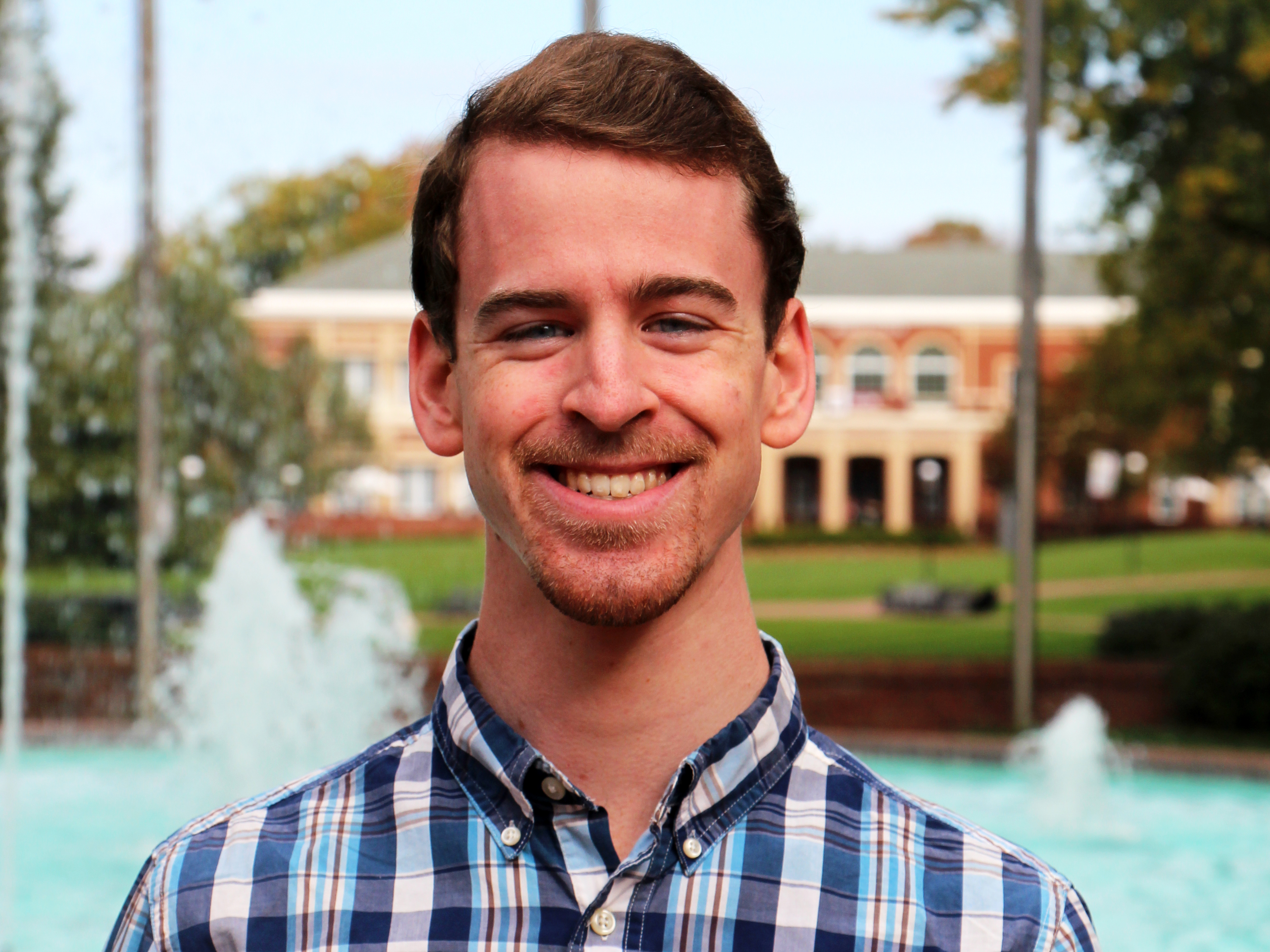In this series, Elon College, the College of Arts and Sciences is shining the spotlight on distinguished members of the Class of 2022 from a wide array of disciplines.
Elon College Fellow Pierce Johnson was recognized for excellence in each of his majors, philosophy and psychology.
The Department of Philosophy twice recognized him with the bell hooks Award for Pedagogical Practices in Philosophy and also awarded him the John Sullivan Award for Philosophical Engagement. The Department of Psychology recognized him the Community Engagement Excellence in Psychology Award. He was also recognized as an Outstanding Student in Classical Studies, one of three minors he earned at Elon along with statistics and neuroscience.
He is a member of six honor societies: Phi Beta Kappa, Sigma Tau, Phi Eta Sigma, Psi Chi, Omicron Delta Kappa and Mu Sigma Rho.
Johnson was a teaching and learning assistant in three philosophy courses with Associate Professor of Philosophy Ryan Johnson and Professor of Philosophy Ann Cahill.
Outside of the classroom, he was president of the Philosophy Club and a student member of Elon’s Traditions Council.
How and why did you choose your majors?
Going into college, I knew I wanted to major in psychology, but philosophy was always a “we’ll see if we have time for it” kind of thing. As I’ve gotten older, I’ve wanted to understand human thoughts and behaviors, which is where psychology comes in. I chose to study philosophy because I wanted to understand the world and our place in it. I think both stem from a desire to live a better life by understanding the world better, and to help others do the same.
Tell us about your research.
For the last two and half years, I’ve been working with Dr. Amy Overman in the Cognitive Science of Memory and Aging Lab. My research examined age differences in memory related to forming first impressions, and later updating those impressions when the people we meet change. I chose the topic because I wanted a project that bridged my interests in the social sciences and humanities. I participated in the Summer Undergraduate Research Experience program, and presented my research at the Cognitive Aging Conference in Georgia and at the Spring Undergraduate Research Forum Day this spring.
Who have been your mentors?
What I’ve enjoyed most about my time here has been the opportunity I’ve had to work with multiple mentors. Dr. Overman is my research and College Fellows mentor, but I considered professors Cahill and Johnson — for whom I served as a TLA for in their respective philosophy courses — my pedagogical mentors. Finally, Dr. Tedd Wimperis is my classical studies mentor, from whom I’ve learned most of what I know about the ancient world and the Latin language.
All of these mentors have had a profound impact on my academic interest, and each has helped me develop a clearer sense of the kind of work I’d like to do in the future. I’m indebted to each of them for their generosity in time and energy, and the care they have shown for my continued development. I wouldn’t be where I am today without them.
What are your plans after graduation?
After graduation I plan to take a gap year to relax a little bit. Over the summer I’ll start the Fulbright Fellowship application process, and later in the fall I’ll begin applying for graduate schools focused between psychology and philosophy, ideally programs specializing in music cognition. I might travel a little bit before graduate school.
What’s been the best part of your time at Elon?
There are a lot of experiences I can point to, but the experiences that have had the greatest impact on me have been inside the classroom TLA-ing with my professors. Teaching with them in that setting was profoundly impactful for me. It’s exciting helping students come to a realization, or better understand a concept they didn’t before entering the classroom. These professors have become my greatest inspiration, and my most trusted advisors. They continue to inspire me as I strive to become a professor myself.
What advice would you share with future Elon students?
I got this piece of advice more often as my college career progressed, but I wish I had been told it sooner: Learn how to say no, and learn that you shouldn’t feel bad when you do.
I threw myself into everything when I started college because I wanted to make the most of my time, but when obligations stacked up and I had to stay up late and wake up early to finish everything, that was when I knew I needed to learn how to say no. I had no practice saying no to obligations in order to claim time for myself, and I wish I understood how to do that better as a first-year.



